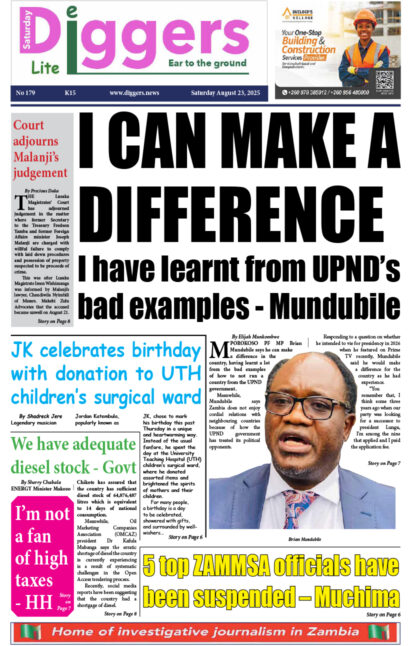The U.S. government, in partnership with the Southern African Development Community (SADC) Secretariat and Zambian government, have formally commissioned the first hybrid maize seed export programme worth $370,000 from Zambia to the Democratic Republic of Congo (DRC).
According to a statement issued via US Embassy Public Affairs Officer Sean McIntosh, the hybrid maize seed export is a first-of-its kind initiative to be commissioned under the SADC Harmonised Seed Regulatory System (HSRS) and Seed Certification and Quality Assurance guidelines.
The export process offers a path forward for SADC countries to move high-quality seed varieties listed in the SADC Regional Variety Catalogue across borders and ensure consistency to those improved seeds.
Speaking during the commissioning in Lusaka, Monday, Agriculture Minister Michael Katambo hailed the development, saying the Zambian government looked forward to a future where the trade of improved seed varieties between countries was a matter of best practice.
“It is an honor to be the first, especially when it is about economic development, food and nutrition, and this maiden export is no exception. The Zambian government looks forward to a future where the trade of improved seed varieties between our nations is not such a novelty, but a matter of best practice. Today is just the beginning and Zambia, along with the other SADC member-states, is committed to the full domestication of the Harmonised Seed Regulatory System,” Katambo said in a statement availed, Wednesday.
And USAID/Zambia director Sheryl Stumbras reiterated the US government’s commitment to SADC’s economic growth.
“On behalf of the U.S government, I am here to reinforce our commitment to economic growth in SADC. The United States believes every person, every community, and every country wants to be empowered to lead their own future. We support self-reliance by walking alongside our friends on their development journey,” said Stumbras.
Issues such as variations in national seed-certification and quality-control standards have historically complicated seed trade between countries, and made it difficult to move emergency seed consignments across borders.
As a result, new and existing seed entrepreneurs are discouraged from investing in the market.
This regional seed trade pilot is designed to provide valuable lessons regarding the feasibility of the recently-passed SADC Seed Certification and Quality Assurance guidelines, according to McIntosh.
Funded by the U.S. government through USAID, this pilot was unofficially launched last December as a joint-venture between the Feed the Future Southern Africa Seed Trade Project, SADC FANR, Seed Co. Zambia Ltd., and the Zambian government.
Under this partnership, Seed Co. Zambia Ltd. planted 200 metric tonnes worth of hybrid maize seed composed of three varieties (SC647, SC637 and SC719) in accordance with the SADC HSRS requirements.
The Feed the Future Southern Africa Seed Trade Project (Seed Trade Project) is a five-year project designed to increase the availability of high-quality seed of improved varieties to farmers in the SADC region, and contribute to increased agricultural productivity and improved food and nutrition security.
























